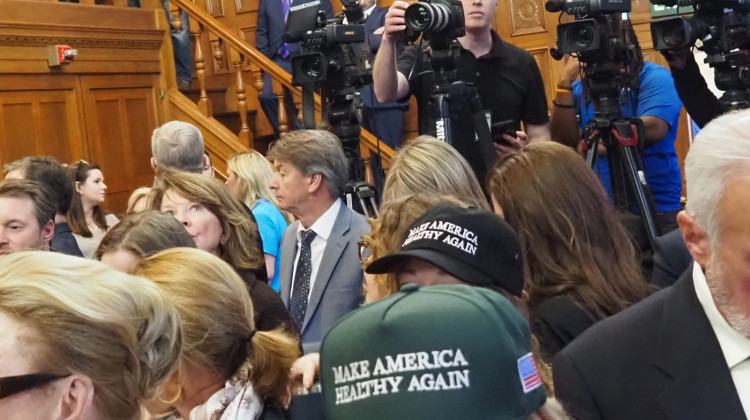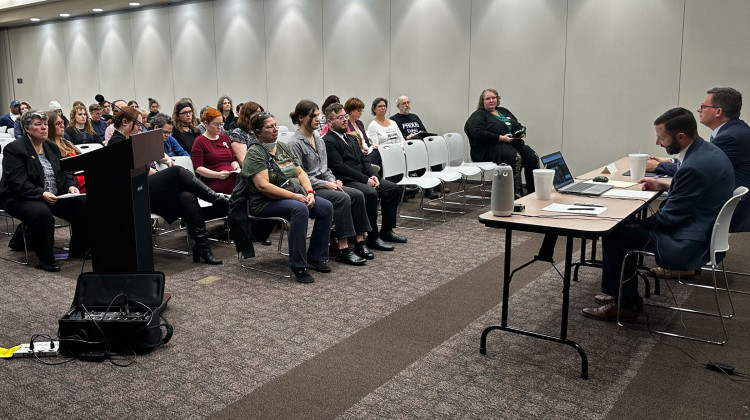The Indiana Task Force on Public Defense is touring the state to hear from attorneys, social workers, and citizens about strains on the public defense system.
The task force has scheduled five events in the listening tour, which are open to the public. The first two were in Indianapolis and in Fort Wayne.
According to testimony at the Indianapolis event on Feb. 9, the public defense system is under strain in part because of a dramatic increase in child welfare cases in recent years.
From 2012 to 2016, the number of children receiving foster care services in Indiana increased by 60 percent. According to 2016 fiscal year data made available by the National Data Archive on Child Abuse and Neglect, children in Indiana enter the foster care system at one of the highest rates in the country - fourth behind California,Texas and Florida.
These numbers prompted the task force to examine ways to help public defenders, who represent clients facing termination of their parental rights.
Some attorneys attribute the spike to the opioid epidemic. Others say it's simply because the Department of Child Services files a case for almost every investigation.
Public defender Heather Edmands, oversees the bulk of child welfare cases in Marion County, testified at the listening session in Indianapolis.
"We've been flooded with cases and we're treading water and have been pretty consistently for three or four years," she said. Her division nearly doubled its staff since then.
Edmands attributed the volume increase to rising drug addiction, noting she represents more parents with children who test positive for drugs at birth. However, she also pointed to DCS policy changes. "For a little while, any case involving a substance where there was a child in the home under 3, DCS was going ahead and filing those," she said.
Edmands told the task force her clients sometimes struggle to meet the requirements to close their cases. For example, it's common for the court to order regular drug test screens. But sometimes a client doesn't have transportation and the agency conducting the screen isn't on a bus line.
It helps to have an attorney who will point this out to a judge."[Having] somebody to advocate and make sure they are not painted into a corner is essential," said Edmunds.
The statewide listening tour is also addressing a report issued last fall by the Sixth Amendment Center in Boston that raised concerns about how public defense services are delivered in Indiana.
Currently, Indiana counties and cities fund and oversee all public defense services. The report says that without a statewide system, Indiana lacks oversight to ensure adequate representation is provided to those who otherwise cannot afford an attorney. (Adequate representation is a constitutional right.)
The task force is gathering testimonies at the listening tour to decide whether it will push for increased state oversight of the public defense system.
The next listening session will be in Evansville on March 20.
This story was produced by Side Effects Public Media, a news collaborative covering public health.
 DONATE
DONATE










 Support WFYI. We can't do it without you.
Support WFYI. We can't do it without you.